Gaia Pope death: 'I'm sickened by police's amateurish mistakes'
- Published
Gaia Pope's family produced a video to show to the inquest jury
The disappearance of 19-year-old Gaia Pope in 2017 prompted a high-profile search and rescue operation on the Dorset coast. But ever since the discovery of her body in undergrowth 11 days later, Gaia's family has been scrutinising the actions of the authorities charged with protecting her.
"I am repulsed and sickened by the amateurish mistakes made by the police," said Miss Pope's twin sister, Maya.
The family feel they were let down by Dorset Police both before reporting her missing on 7 November 2017 and after. They also believe Miss Pope was failed by healthcare professionals.
It resulted in them pushing for a wide-ranging coroner's inquest which, during 11 weeks of gruelling evidence, heard there were indeed errors made.
However, Miss Pope's family has also criticised the coroner after the jury at her inquest was told the police could not be blamed for her death.
Coroner Rachael Griffin told the jury not to consider the accepted police failings as contributory factors.
Cousin Marienna Pope-Weidemann called it a "shocking indictment" of the inquest system.
Miss Pope, described by relatives as "joyful" and the "life of the party", had told her family and police she was raped when she was 16 - but jurors heard she felt officers did not believe her allegation.
A diagnosis of post-traumatic stress disorder (PTSD) followed, and the epilepsy she had subsequently became so severe her doctor told jurors she was being considered for brain surgery and should not have even been crossing roads on her own.
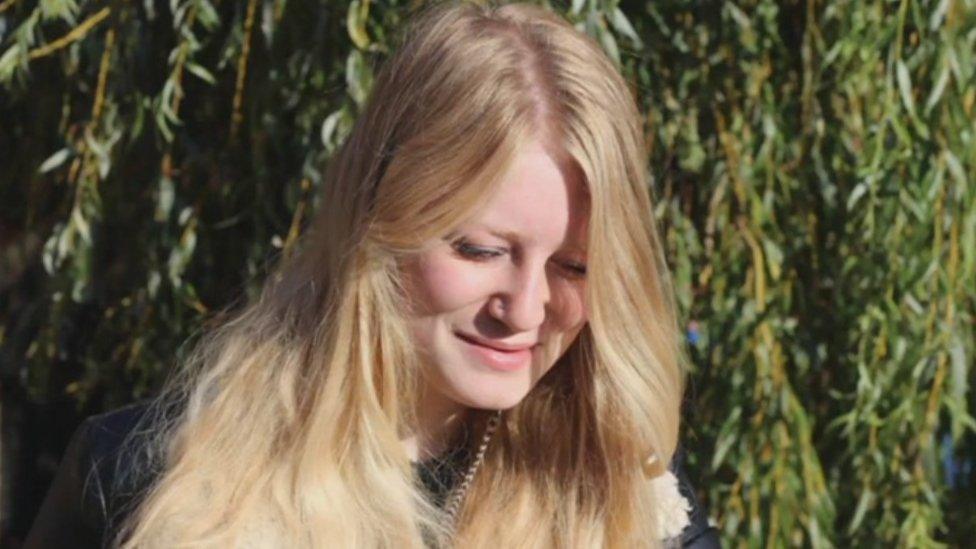
The inquest into Miss Pope's death heard she had wanted to pursue a career in health and social care
The man she had accused of attacking her had been jailed for unrelated sex offences, and news of his imminent release led to her mental health deteriorating further.
She had been suffering with "ongoing manic episodes", the jury was told, and was taken to Poole Hospital just over two weeks before she went missing, displaying erratic behaviour after an epileptic seizure.
The court heard she was assessed by on-call psychiatrist Dr Peter Jeffery, 14 hours after being admitted.
Dr Jeffery admitted to the inquest he did not contact Miss Pope's neurologist, chose not to section her under the Mental Health Act and did not refer her to the mental health crisis team.
He told the jury he had "regrets" about how he discharged Miss Pope, and acknowledged there were "missed opportunities" to intervene.
The family also said they believed the complexity of her epilepsy was "not recognised" by the healthcare workers she encountered.

Timeline of disappearance
December 2015: Gaia Pope reports being raped to Dorset Police.
June 2016: The force tells Miss Pope the man she accused will not be charged.
February 2017: Miss Pope is sectioned under the Mental Health Act.
April 2017: The man she accused is jailed for unrelated sex offences.
October 2017: Miss Pope is admitted to hospital after suffering a manic episode. She is discharged and not sectioned.
November 2017: Miss Pope learns the man she accused is being released. She goes missing and is found dead 11 days later.

Two weeks later, on the day she fled from her aunt's home in Swanage, Miss Pope wrongly believed she was pregnant and was behaving erratically, having been "pushed to exploding point", her twin said.
Nobody knows what went through Miss Pope's mind next, but her body was eventually found naked in undergrowth, more than two days after her clothes were found strewn on the ground nearby. She had died of hypothermia.
The inquest heard she was due to go to Wareham police station to report receiving indecent images on Facebook on the day she went missing.
But the coroner was told her aunt, Talia Pope, was described as "talking absolute rubbish" by a police officer when she called to confirm timings of the meeting.
It later emerged police could not find records of previous calls because they had spelt her name incorrectly, searching their systems for "Gaia Hope".
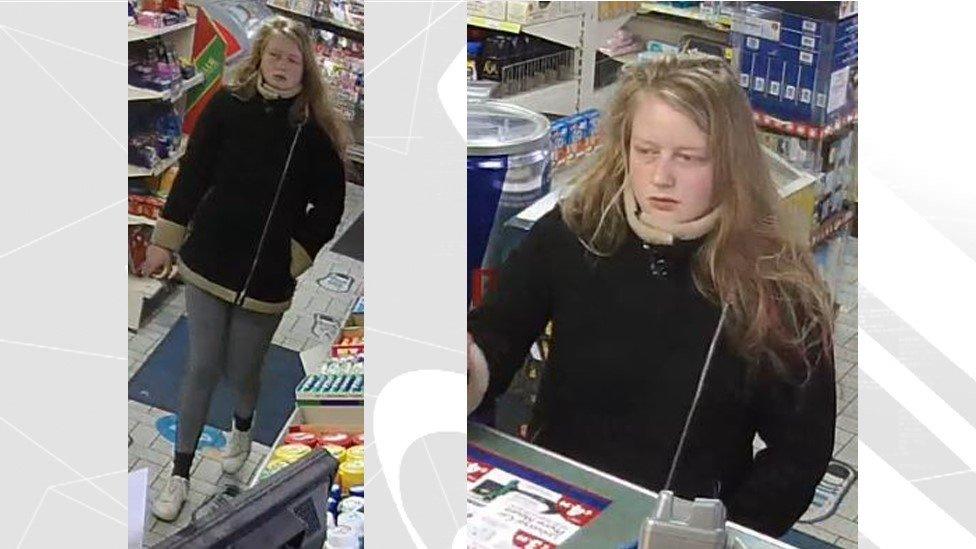
CCTV showed Miss Pope at a petrol station on the afternoon she went missing
Police were phoned a matter of minutes after Miss Pope disappeared, the coroner was told.
Miss Pope's aunt and mother made multiple calls warning of her vulnerability, but it took two-and-a-half hours for a missing person's report to be generated, and she was not deemed to be high risk until the following day.
One police officer, PC Jon Kuspert, searched for Miss Pope on his own in the hours after she went missing. He had also notified the National Police Air Service (NPAS) of her disappearance.
PC Scott Mesher, an NPAS tactical flight officer at the time, told the inquest it was a "big task" for PC Kuspert to undertake alone.
"[PC Kuspert] said 'I am literally on my own here trying to search everywhere - can you help?'," PC Mesher said.
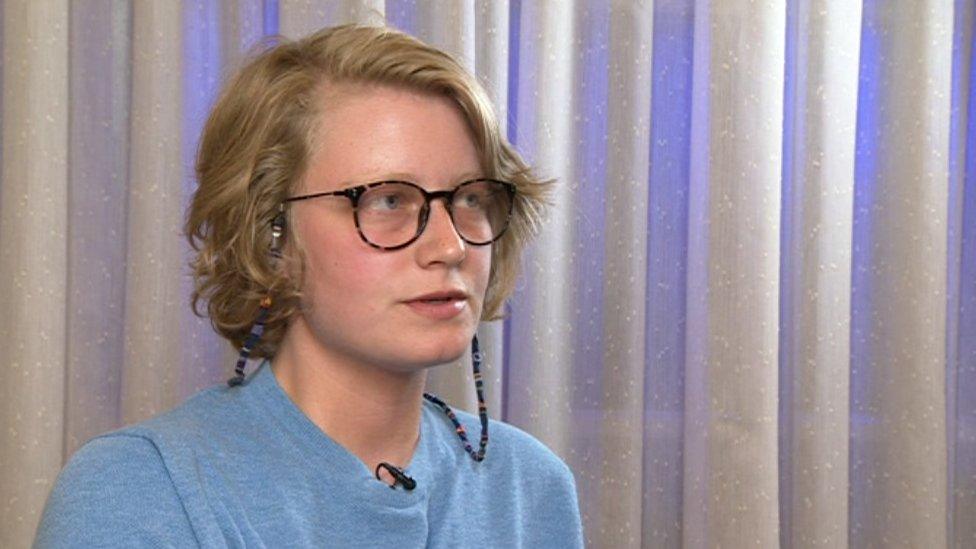
Gaia Pope's twin sister Maya told the BBC she believed police made "amateurish mistakes"
However, a helicopter search of the area, undertaken five hours after the initial missing person's report, failed to find Miss Pope.
Sean Mallon, who was acting up as a sergeant on the evening she went missing, admitted making several mistakes, including failing to deploy two available officers to look for her and not handing over the case at the end of his shift.
Mr Mallon was later given a final warning for his conduct and has since retired from the force.
A search carried out the day after Miss Pope went missing was delayed and, when it did start, an officer said he could not remember if they had a photograph of her as a point of reference.
The officers were peering into gardens and looking on the road for the teenager, jurors were told.
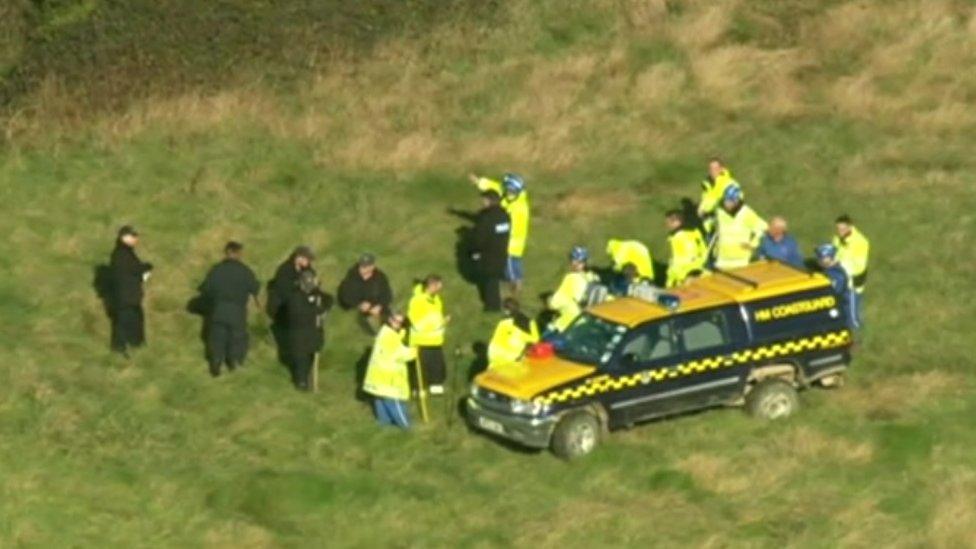
The disappearance of Miss Pope prompted a multi-agency search and rescue operation
Meanwhile, the family were distraught and began making regular appeals for help in the media.
"The longer it went on, the less hopeful we became," Miss Pope's sister Clara said. "We so, so desperately wanted Gaia to come home."
Gaia's cousin, Marienna Pope-Weidemann, said frustration with police was growing, that officers did not have access to "basic information like her home address and where she was last seen".
"No one [from Dorset Police] could work out what had already been done and what needed to be done," she said.
"If they had just sat down with us and said 'Our computer system is on the fritz - can we take this once more from the top? Can you fill in the gaps for us?' We would have done that... but they never gave us that opportunity, and I believe that contributed to her death."
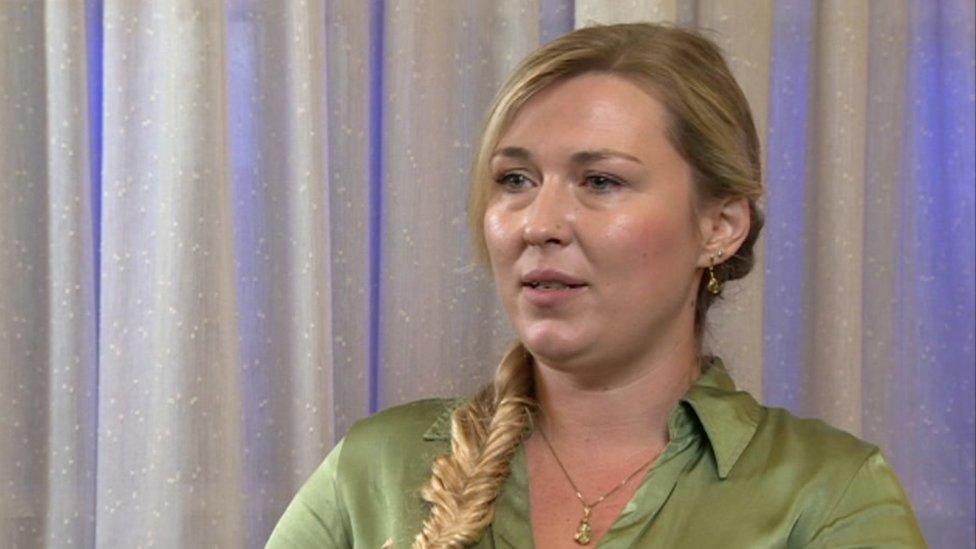
Marienna Pope-Weidemann, Miss Pope's cousin, said she wanted changes to result from the inquest
She told the inquest the family began co-ordinating searches but were told by police to stop looking in rural areas, including the coastline close to where Miss Pope was eventually found.
Officers reassured them that "if she was there, we would have found her", the jury was told.
Days later, when Miss Pope's clothes were discovered in that area, Dorset Police offered to send officers to guide a large volunteer search operation planned for the next day, but no officers came, the inquest heard.
"There were members of the public, the press, our MP but no police guidance," Ms Pope-Weidemann said.
Miss Pope's body was found in deep undergrowth two days later.
But her family said the mistakes from Dorset Police continued.
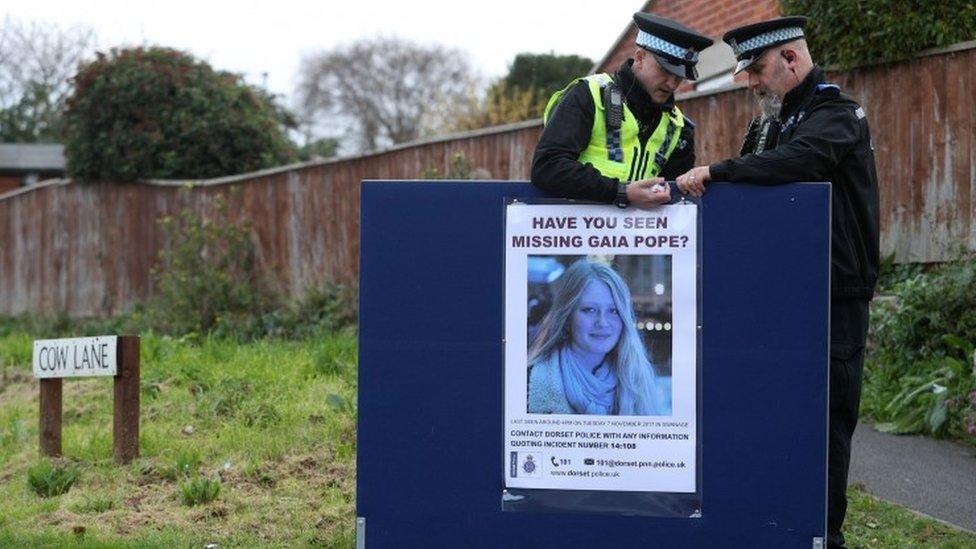
Police searches were criticised by Miss Pope's family
PC David Taylor, who was deputy search coordinator, admitted at the inquest he inserted additional information into the force's search logs, up to a month after Miss Pope was found dead.
Sarah Clarke QC, counsel for the inquest, suggested to the officer he had "beefed up" the log because he knew there would be an inquest before a coroner.
PC Taylor said he wanted to bring all the information together.
"I can understand why the inference would be drawn now," he said.
"In hindsight, would I do the same again? Absolutely not. It was wrong. It doesn't look great, and I apologise for that."
An investigation carried out by the Independent Office for Police Conduct's (IOPC) found the police search should have been better organised and coordinated - particularly in the first 24 hours - and that Gaia's disappearance should have been given a higher initial risk assessment.
However, it added that it did not identify "any evidence to suggest that a more concentrated approach would have resulted in Gaia being found alive".
The IOPC said its recommendations had led to significant changes to Dorset Police's missing person policies and procedures.

Miss Pope's sister Clara Pope-Sutherland (left), her twin Maya Pope-Sutherland (centre) and cousin Marienna Pope-Weidemann laid flowers on the second anniversary of her death
Miss Pope's family said they wanted the findings of the inquest to result in change.
"We are not going to allow 'lessons will be learned' to be the answer we get from this," said Miss Pope's sister, Clara.
Miss Pope-Weidemann added: "We've paid a very heavy price as a family for going through this.
"We've done what we've done and we've kept pushing because we don't want other families to go through what we've been through - ever.
"Whether that change comes or not - that's what will determine whether this was worthwhile."
Dorset Police said it was "truly sorry" Gaia and her family did not receive better treatment in the 48 hours following her disappearance.
In a statement, the force said it recognised it "should have done much better" in dealing with the case.
Since Miss Pope's death, Dorset Police said it had worked to "ensure we have the right framework in place so we can respond promptly and effectively when someone is reported missing".

Follow BBC South on Facebook, external, Twitter, external, or Instagram, external. Send your story ideas to south.newsonline@bbc.co.uk, external.
Related topics
- Published16 July 2022

- Published15 July 2022
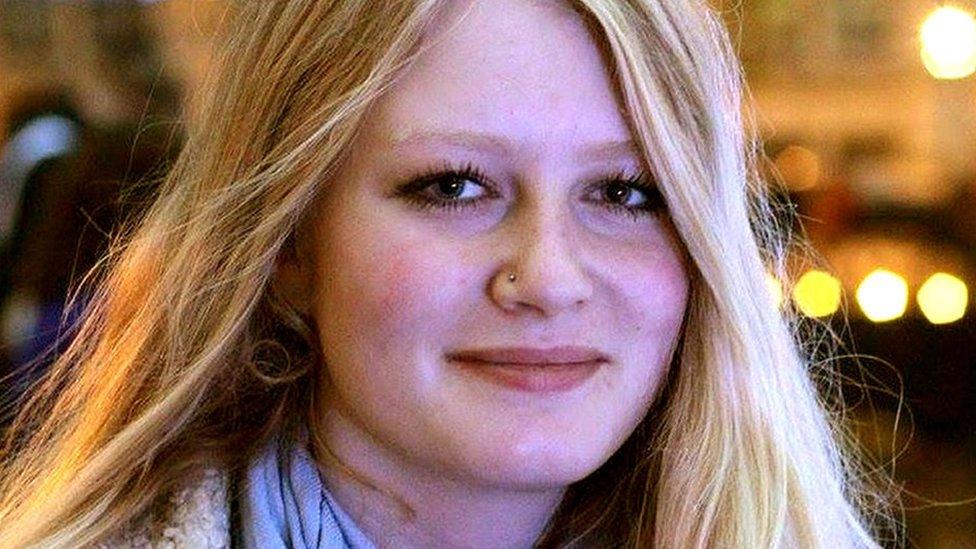
- Published20 June 2022
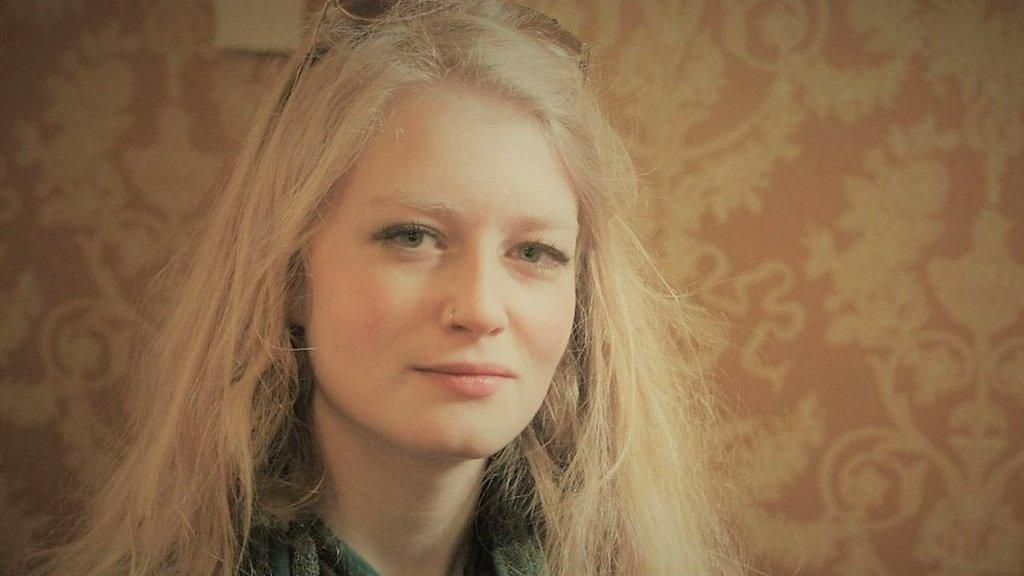
- Published10 June 2022

- Published6 July 2022
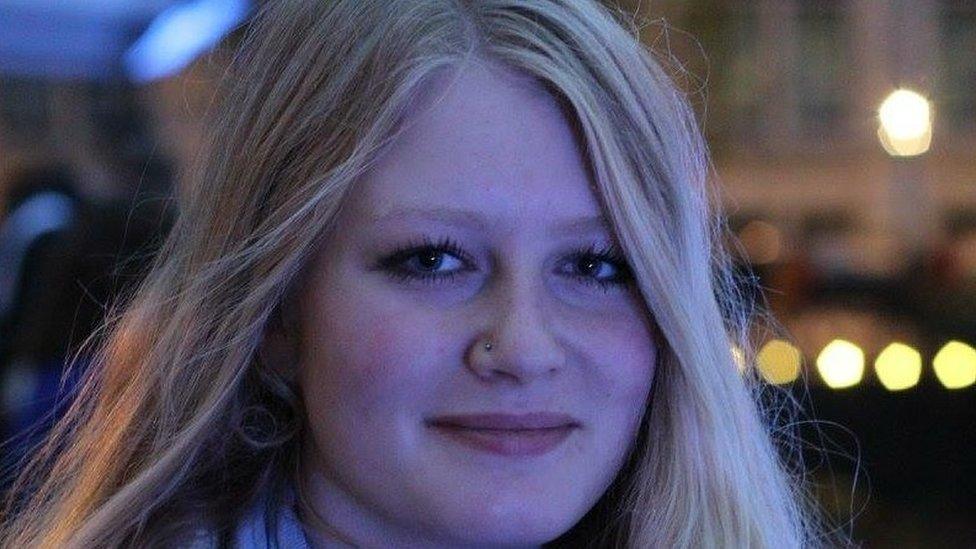
- Published26 May 2022

- Published24 May 2022

- Published23 May 2022

- Published17 May 2022

- Published13 May 2022

- Published12 May 2022
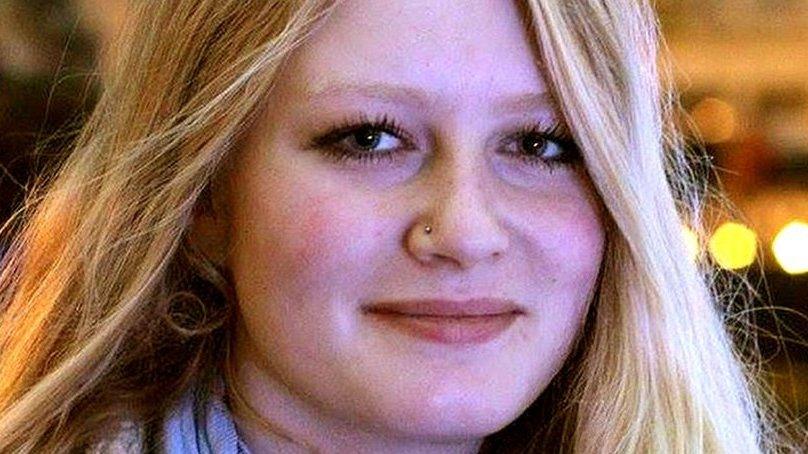
- Published5 May 2022

- Published4 May 2022
